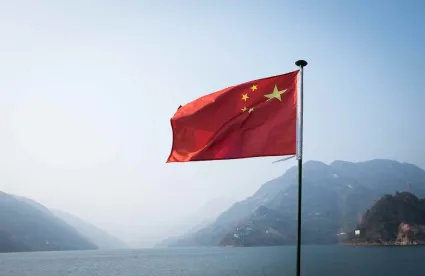On Saturday 9 January 2021, the PRC Ministry of Commerce (MOFCOM) issued MOFCOM Order No. 1 of 2021 on Rules on Counteracting Unjustified Extra-Territorial Applications of Foreign Legislation and Other Measures (the Rules). The Rules specify that they were formulated pursuant to the PRC National Security Law for the express purpose of “counteracting the impact on China caused by the unjustified extra-territorial application of foreign legislation and other measures, safeguarding national sovereignty, security and development interests, and protecting the legitimate rights and interests of citizens, legal persons and other organizations of China”. The Rules have immediate effect. In the context of the ongoing trade tensions between the US and China, the new Rules have caught the attention of many foreign companies with operations in China. This alert offers clarification and perspective.
Article 2 of the Rules states that they “apply to situations where the extra-territorial application of foreign legislation and other measures, in violation of international law and the basic principles of international relations, unjustifiably prohibits or restricts the citizens, legal persons or other organizations of China from engaging in normal economic, trade and related activities with a third State (or region) or its citizens, legal persons or other organizations”. Accordingly, the Rules are explicitly crafted as a counter to the laws and regulations of other countries that limit the ability of Chinese companies to do business with third countries, including, for example, Iran and North Korea.
By their terms, the Rules do not apply in situations where a US or other foreign law or measure applies to China or to Chinese companies. Had that been the intent, MOFCOM could have drafted the Rules to apply to “trade and related activities with [the People’s Republic of China or with] a third State (or region) …”. MOFCOM has confirmed this interpretation by publishing on 9 January an interview with one of the authors of the Rules in which it is stated that the purpose was mainly to limit the application of “secondary sanctions” on Chinese businesses.
In the past, we have seen measures adopted by various countries in response to the extraterritorial laws of the US by discouraging domestic businesses and individuals from compliance. The EU, for example, adopted a blocking statute after the US adopted the Iran and Libya Sanctions Act of 1996. In that case, EU companies had argued in various contexts that they could not meet their obligations under both EU law and US law because the two were incompatible. The interview that was published by MOFCOM on 9 January references the EU blocking statute as both regulations target and share similar purposes and provisions.
The Rules mirror the EU blocking statute in place since 1996 sharing aspects such as the duty to inform the authorities of the foreign legislation affecting ‘normal economic, trade and related activities’ and also potential countermeasures to the application of extra-territorial foreign legislation. The main difference between both relies on the targeted extra-territorial foreign legislation. On one side, the EU blocking statute is applicable to the extra-territorial laws listed in the regulations’ Annex, as updated by the EU. On the contrary, the Rules do not specify the foreign regulations targeted, being applicable to ‘unjustified extra-territorial foreign legislation or other measures’.
Like China’s adoption on 1 December 2020 of the Export Control Law (see our blog post here), which creates for China an export control regime with restrictions and licensing more comparable to that of the US, the Rules may have been promulgated to outfit China with a more complete set of tools with which to respond to the US on trade issues. Article 5 of the Rules imposes on Chinese legal and natural persons an obligation to report to the competent department of MOFCOM any instance in which the extraterritorial application of a foreign law or other measure impacts the normal business activities with a third state or region or its citizens, and Article 6 gives such department the authority to determine whether such territorial application is unjustified. If so, Article 7 authorises such department to prohibit compliance, subject to any exemption granted pursuant to Article 8.
We will need to see how China implements the Rules. The promulgation on Saturday is only an initial step, providing in Article 2 for the establishment of a working mechanism of relevant agencies of the central government to coordinate the implementation of the Rules. Regardless, however, based on experience, we anticipate the US government will not be moved by the promulgation of the Rules. Instead, it is likely to continue to exercise discretion in choosing the circumstances under which Chinese companies will be sanctioned under US law for their actions.
In the long term, a potential discussion on countermeasure interaction or cooperation between the foreseen in the Rules and the EU blocking statute may seem relevant in terms of enforceability. Especially taking into consideration the relationship between the EU and China and the Comprehensive Agreement on Investment currently under negotiations.



 />i
/>i

